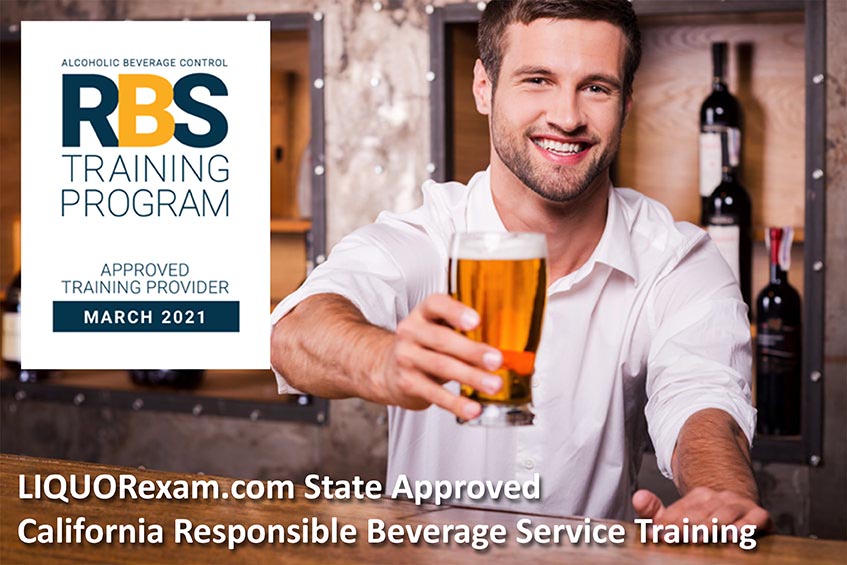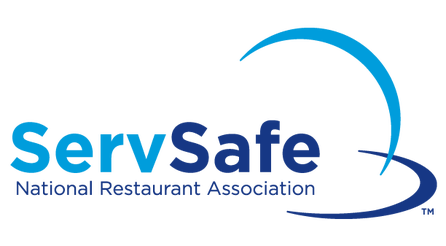Start Your Career with a safe serve certification va and Make Your Resume Shine
Start Your Career with a safe serve certification va and Make Your Resume Shine
Blog Article
Master Accountable Alcohol Service With Comprehensive Accreditation Programs
The proficiency of accountable alcohol solution is not merely a regulatory need; it is a fundamental aspect that improves the reputation and operational integrity of facilities within the friendliness industry. Comprehensive qualification programs offer important understandings into local regulations, effective treatment methods, and consumer involvement methods. By investing in these training efforts, organizations can promote a society of responsibility among their team, mitigating risks and boosting client fulfillment. However, the path to effective implementation and its long-lasting benefits might not be as simple as it seems. What difficulties exist in advance for those that look for to elevate their solution standards?

Significance of Liable Alcohol Solution
Accountable alcohol service is important to promoting public wellness and security in facilities that offer alcoholic drinks. It includes a variety of practices created to avoid the overconsumption of alcohol, minimize the risk of alcohol-related damage, and ensure a safe environment for clients and team alike. By maintaining responsible solution criteria, facilities can alleviate possible events of intoxication, which might cause crashes, violence, or other adverse outcomes.
Moreover, accountable alcohol solution improves the general client experience. In addition, facilities that stick to accountable service methods typically experience reduced insurance coverage premiums and decreased legal liabilities.
Furthermore, executing accountable alcohol service practices straightens with more comprehensive public wellness campaigns intended at decreasing drug abuse and promoting area wellness. This aggressive technique not only safeguards specific customers however also adds to a much healthier society. Ultimately, liable alcohol solution is not simply a legal commitment; it stands for an ethical dedication to the wellness of customers and the area at big.
Trick Parts of Certification Programs
Qualification programs for accountable alcohol solution generally incorporate several crucial components created to equip personnel with the necessary skills and expertise to serve alcohol safely. These programs usually include extensive training on neighborhood and state alcohol regulations, ensuring that individuals recognize their lawful obligations and the consequences of falling short to abide.
Another vital element is the recognition of indicators of drunkenness - servsafe food handlers card. Staff are trained to acknowledge behavior cues showing when a client might be over-served, enabling them to step in properly
Furthermore, effective communication approaches are emphasized, teaching staff how to engage with customers in a manner that promotes responsible drinking. This consists of training in problem resolution strategies, permitting team to take care of hard scenarios steadly and properly.
In addition, programs regularly include functional situations and role-playing exercises, offering participants with real-life instances to exercise their abilities. Last but not least, continuous education and resources are important for maintaining expertise and abilities in time, as policies and best techniques progress. Together, click this these components develop a thorough framework that empowers team to promote a safer alcohol consumption atmosphere more while reducing responsibility for facilities.
Benefits for Team and Establishments
Team and facilities alike reap substantial benefits from participating in liable alcohol service qualification programs. For team, these programs improve knowledge and skills connected to alcohol service, outfitting them to determine signs of intoxication and implement reliable intervention strategies. This training not just fosters a feeling of self-confidence among staff members yet also advertises a culture of safety and security and duty in the office.
For facilities, spending in certification programs can bring about minimized liability and fewer cases associated to over-serving. By guaranteeing that team are well-trained in accountable solution methods, facilities can reduce dangers linked with alcohol-related events, therefore protecting their credibility and monetary security. Furthermore, numerous territories offer incentives, such as lower insurance policy premiums, for accredited establishments.
Furthermore, executing licensed practices can boost client satisfaction and loyalty. Clients are most likely to return to venues that prioritize their security and wellness. Eventually, a commitment to responsible alcohol service not only cultivates find out this here a positive environment but likewise improves the general operational effectiveness of establishments, making it a smart investment for long-lasting success in the friendliness industry.
Common Challenges in Alcohol Solution
Making certain reliable alcohol service is not without its challenges, also in facilities committed to accountable practices. One considerable difficulty is the requirement for staff to accurately analyze clients' alcohol usage levels. servsafe food handlers card. This calls for an eager understanding of exactly how various variables, such as food consumption, tolerance, and individual distinctions, influence drunkenness
Furthermore, the pressure to maximize sales can contrast with accountable service methods. Workers might deal with difficulties in rejecting service to inebriated people, particularly in social settings where peer pressure and assumptions are common.
Another difficulty is staying updated with local legislations and regulations pertaining to alcohol service. Conformity is vital, yet frequent modifications in legislation can produce confusion and may bring about unintended offenses.
Training programs might not constantly cover the nuances of real-world circumstances, leaving staff ill-equipped to take care of complicated scenarios. Irregular communication in between management and employees pertaining to expectations for accountable solution can further intensify these concerns.
To navigate these challenges successfully, facilities should promote an environment of support, highlighting the relevance of responsible service while offering the needed devices and training for staff to be successful.
Actions to Get Certification
To obtain Accountable Alcohol Solution Qualification, candidates typically begin by researching the particular demands mandated by their neighborhood governing authorities. These requirements may vary considerably depending upon the area, so it is crucial to acquaint oneself with the pertinent laws and regulations.

After picking a program, applicants have to complete the requisite training, which generally covers topics such as determining intoxication, recognizing legal obligations, and implementing techniques for liable service. Individuals need to actively involve with the product, as this knowledge is crucial for reliable alcohol service.

Adhering to training, prospects generally take an assessment to analyze their understanding of the material. Successful conclusion of this assessment results in certification.
Final Thought
In final thought, understanding liable alcohol solution via extensive qualification programs is important for promoting security and improving client experiences within the hospitality market. By gearing up personnel with the needed understanding and skills, establishments not only reduce risks related to overconsumption and legal liabilities but also grow a society of duty. This dedication to accountable service ultimately leads to increased consumer commitment and functional success, strengthening the significance of ongoing training and adherence to alcohol service criteria.
Report this page